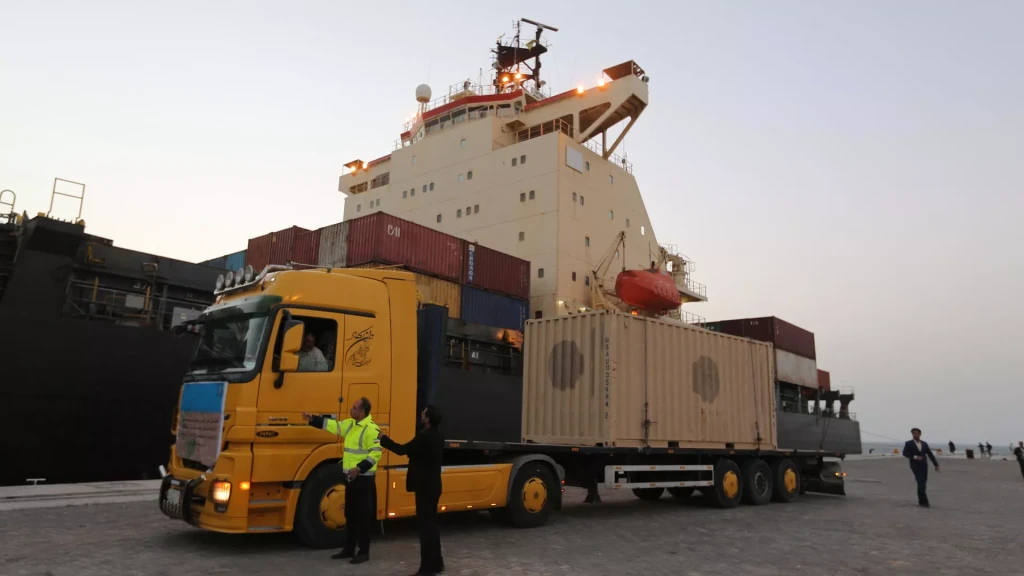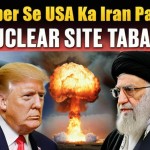India began construction of the Chabahar port in Iran in 2016 after the easing of US sanctions. Nevertheless, the Donald Trump administration reimposed sanctions in 2018. Recently, India signed a 10-year contract to operate the strategically important Iranian port despite the risk of US sanctions. The US State Department has warned that companies trading with Iran will be subject to sanctions.
Like the long-planned Pakistan-Iran gas pipeline, this one has been stalled for decades due to concerns over US sanctions. However, Iran's president's visit to Pakistan in April reignited hopes for the project. The United States has once again warned Pakistan that it will face sanctions if it presses ahead with the pipeline deal.
Despite the looming threat of Washington sanctions, these regional developments indicate that countries like India are unwilling to follow the dictates of world powers when it comes to protecting their national interests and are moving towards independent foreign policies and multipolarity. ing.
However, a question arises. Is Pakistan pursuing the same scale as India in the Iran-Pakistan gas pipeline?
India's unique approach to US sanctions: What Pakistan can learn
Speaking to Mohammad Ali Zafar, a researcher and geopolitical analyst, he said, "This agreement highlights India's important economic and strategic interests in Chabahar port." Enabling connectivity with Afghanistan and Central Asia is crucial to India's expanding neighborhood policy. Chabahar serves as a transit hub, and the recent 10-year contract for Chabahar port highlights India's ambitions to expand and bypass Pakistan.
“Pakistan is concerned about the Iran-Pakistan Pipeline Agreement, including an $18 billion fine from Iran for failing to fulfill its promise to build the pipeline and sanctions from the United States if Pakistan goes ahead with the plan. We are concerned about the possibility of closer ties between Iran and India.This deal will bring Afghanistan further into India's sphere of influence, but in particular will make Afghanistan less dependent on Pakistan for transit trade in the coming years. All of this will come at the cost of Pakistan’s regional influence,” he added.
From exporting Russian oil to signing a 10-year deal to operate Iran's Chabahar port, India has demonstrated an independent foreign policy despite the risk of US sanctions.
"India's 10-year deal with Iran for the Chabahar port shows strategic assertiveness despite possible US sanctions and underlines national interests and regional ties." Aymen Jamil, Middle East correspondent for Iran News Agency, said, ``India's ability to avoid sanctions while making deals such as buying oil from Russia is a strategic challenge for India as one of the world's largest economies.'' "This confirms that we are pursuing partnerships and economic priorities." Said Global Defense Insight.
This shows that India is prioritizing its national interests over mindless adherence to global alliances.
“Historically, in the 2000s, an international conference held in Russia in St. Petersburg held discussions on connectivity between Central and North Asian countries and West Asian countries. Currently, India, Iran and other allies , plans to implement this plan to connect South Asia, Central Asia and Eurasia through economic corridors and international transit trade routes to landlocked countries,” said Professor Faisal Javaid, think tank researcher and director of ORIC. Ta. Federal Urdu University in Karachi and a geopolitical analyst.
Professor Faisal Javaid further said, "India, like Washington, is China's rival in the region, so by signing this deal, India could change the direction of US sanctions." However, Pakistan cannot afford sanctions in the current economic crisis. ”
Pakistan should follow India's example and adopt a more independent approach to foreign policy. Rather than participate in America's "game of destruction," Pakistan should focus on its economic priorities and move forward with projects such as the Pakistan-Iran gas pipeline, which have been stalled for years due to geopolitical concerns.
However, Pakistan-Iran expert Aymen Jamil said, ``Pakistan may view the Chabahar Treaty as a security risk that would allow Pakistan to proceed with the Gawadar port project.'' . The deal could give Iran more influence over trade routes and activities related to Afghanistan, leading to a realignment of its economic and strategic interests in the region. ”
New Delhi's independent stance could serve as a model for developing countries trying to chart their own course.
“Islamabad is looking for alternative trade routes with neighboring countries, but as relations with Afghanistan have deteriorated due to the Taliban government, India is looking to connect with Central Asia through the Iran-Afghanistan route, bypassing Pakistan. Chabahar Port was developed as a rival to Pakistan's Gwadar Port, which is part of the Pakistan-China Economic Corridor (CPEC).
But Pakistan should not consider Iran as a rival in this context,” said political expert F. Javaid. However, regarding the Pakistan-Iran gas pipeline, Pakistan's Defense Minister Khawaja Asif said that even though the project has been delayed for years due to geopolitical issues and sanctions, Islamabad will not accept the long-delayed gas pipeline contract with Iran. He said he would find a way to get it done.
“Pakistan must understand that it is not in the same position as India for the US. Moreover, Pakistan has economic, political and diplomatic advantages that will test the US through moves like the Iran-Pakistan Pipeline. Such efforts could provoke significant backlash and jeopardize the important relationship between Pakistan and the United States. Given the dependence, such a move could have dire consequences for the country,” M.A. said. Geopolitics expert Zafar said:
Washington wants to sanction the whole world
The India-Iran Chabahar Port Agreement was signed by India's Shipping Minister Sarbananda Sonowal and Iran's Urban Development Minister Mehrdad Bazurpash in the Iranian city of Chabahar.
“This deal provides an ideal environment for Pakistan to observe what questions the US will ask India regarding this deal. If there is no response other than diplomatic talks, Pakistan will also There is a possibility of moving forward with a pipeline agreement between Pakistan,” Mohammad Ali Zafar said.
The agreement includes Central Asian countries, including Uzbekistan, Turkmenistan, Afghanistan and Tajikistan, and includes investments in these countries. The details of the agreement have not been disclosed, but it is likely to be about economic and trade cooperation between the participating countries.
After the signing, Mr. Sonawal said: “The importance of Chabahar port goes beyond its role as a mere conduit between India and Iran. It is an important trade artery linking India with Afghanistan and Central Asian countries. You will have access to the port.”
In response, Iranian Minister Bazurpash said, ``We are satisfied with this agreement and have full confidence in India.
'' However, it is important to note that if Iran joins the deal, the United States may impose sanctions on some of the countries involved. The irony is how many states the US sanctions.
In this regard, regional expert Aymen Jamil further stated: “U.S. sanctions make doing business with Iran difficult, but not impossible. Sanctions waivers and alternative options are also available.”
“Given the timing of the deal and the upcoming US elections, I think India has taken a timely step. Even the Biden administration is hopeful that the new administration will look into this issue and engage in a diplomatic battle with India. "You'd hope not." "You're dealing with a huge Indian vote bank that no one wants to disturb, especially during elections," M.A. said.








